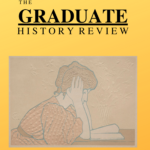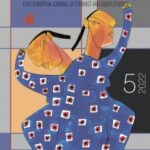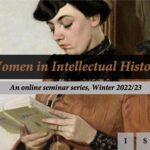 Forscher*innengruppe „Figurationen der sozialen Ungleichheit“,Universität Wien und SNF-Projektgruppe „Freiwilligkeit und Geschlecht. Neuverhandlung der gesellschaftlichen Arbeitsteilung seit den 1970er-Jahren“,Universität Fribourg
Forscher*innengruppe „Figurationen der sozialen Ungleichheit“,Universität Wien und SNF-Projektgruppe „Freiwilligkeit und Geschlecht. Neuverhandlung der gesellschaftlichen Arbeitsteilung seit den 1970er-Jahren“,Universität Fribourg
Zeit: Di., 06.12.2022, 11.00–14.00 Uhr
Ort: Seminarraum Geschichte 1, Universitätsring 1, 1. Stock, 1010 Wien
Programm (PDF)
- Matthias Ruoss, Univ. Fribourg: Kriminalisierte Freiwilligkeit. Abtreibungshilfen um 1900
- Regula Ludi, Univ. Fribourg/Zürich: Thesenartige Überlegungen zu einem analytischen Zugriff auf Freiwilligkeit als sozialer Praxis
- Juliane Schiel, Univ. Wien: Through the Lens of Coercion. For a Shift of Perspective in Labour and Social History
Abendveranstaltung: Vortrag: Sarah Probst: Feminismus in der Kleinstadt. Eine mikrohistorische Spurensuche in Solothurn
Im Rahmen des WISO-Abendkolloquium, Wintersemester 2022/23 (PDF)
Zeit: Di., 06.12.2022, 18.00-19.30 Uhr
Ort: Seminarraum Geschichte 1 und virtueller Raum
„Der Vortrag bietet einen Einblick in mein laufendes Dissertationsprojekt und fokussiert methodische und forschungsethische Problemstellungen. Die Aktivistinnen, deren freiwilliges Engagement ich in meiner Arbeit untersuche, waren vom vorenthaltenen Stimmrecht betroffen, von fehlenden Frauenhäusern und Anlaufstellen für frauenspezifische Fragen, Problemen und Nöten, von dominanten Männern in Machtpositionen und innerhalb der alternativen linken Bewegungen, von Continue reading

 Graduate History Review (Univ. of Victoria), Volume 12 (2023)
Graduate History Review (Univ. of Victoria), Volume 12 (2023)  Forschungsplattform GAIN – Gender: Ambivalent In_Visibilities
Forschungsplattform GAIN – Gender: Ambivalent In_Visibilities  European research network on discourses of marginality and de-marginalization (DeMarg)
European research network on discourses of marginality and de-marginalization (DeMarg)  Forschungsplattform GAIN – Gender: Ambivalent In_Visibilities
Forschungsplattform GAIN – Gender: Ambivalent In_Visibilities  Feminist Critique: East European Journal of Feminist and Queer Studies
Feminist Critique: East European Journal of Feminist and Queer Studies  The International Society for Intellectual History (ISIH)
The International Society for Intellectual History (ISIH)